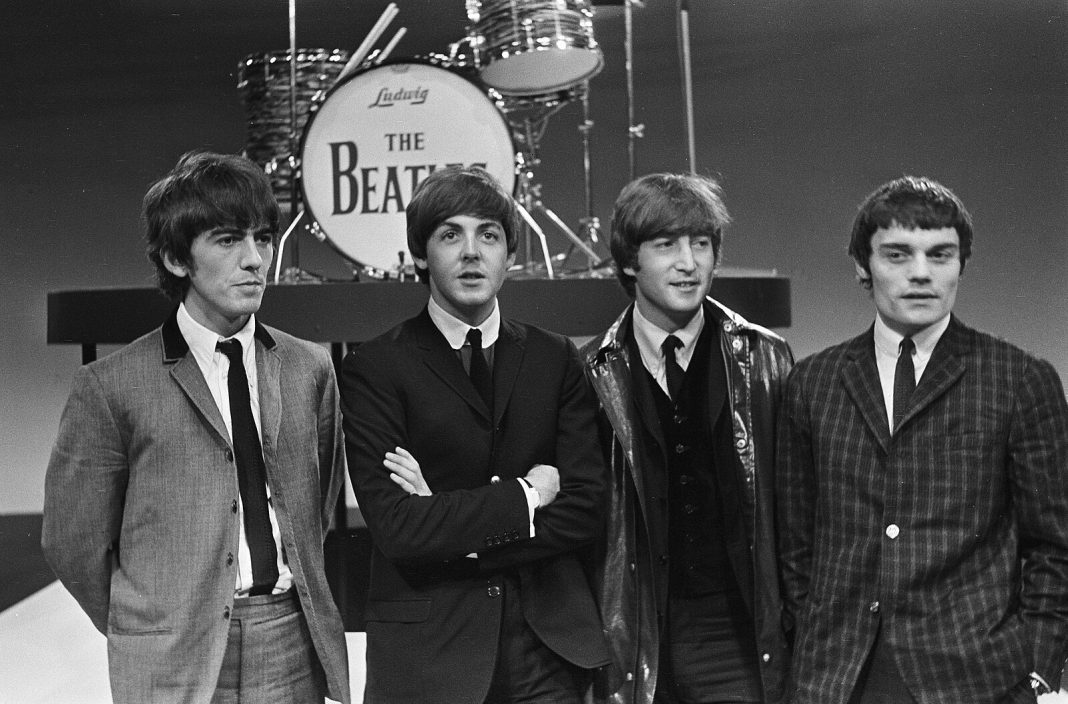A few weeks ago, Sam Mendes announced his casting for the Beatles biopics he aims to release in 2028. As I recall from conversations among friends and a torrent of angry posts on social media, few were pleased with the announcement.
With Paul Mescal as McCartney, Harris Dickinson as Lennon, Barry Keoghan as Starr, and Joseph Quinn as Harrison, many seemed to believe Mendes had got the casting wrong. However, should we be asking if Keoghan could be a convincing Ringo, or Mescal do McCartney justice? Perhaps the more important question is whether we need yet another music biopic.
Biopics, especially those of music stars, are seemingly becoming the latest way the film industry seeks large profits and high turnouts. Much like the comic-book franchises and live-action remakes before it, the music biopic can provide box-office success, without the tiresome task of being all that creative.
Likely spurred on by the mammoth financial success of Dexter Fletcher and Bryan Singer’s 2018 Freddie Mercury biopic, Bohemian Rhapsody, which grossed just short of a billion dollars, the years since have seen numerous music legends immortalised in biopic form. Fletcher had another crack in his 2019 Elton John biopic Rocketman (grossing 195 million USD), and 2022 saw Baz Luhrmann’s equally high grossing biopic Elvis.
If these set the wheels in motion, by last year, Hollywood had gone biopic-crazy. 2024 saw four big releases, following the lives of Amy Winehouse (Back to Black), Bob Marley (One Love), Bob Dylan (A Complete Unknown) and Robbie Williams (Better Man). And who can forget Robbie Williams taking ape form?
These four releases collectively grossed around 390 million USD. Far from being niche releases, these biopics were a pillar of the film industry last year. With each Beatle set to get their own film’s attention, it seems unlikely that these films will not prove hugely profitable. And if Marley, Dylan or an evolutionarily regressing Robbie Williams can draw in millions, it is unlikely there will be an empty seat in the cinema when these films hit the big screen.
However, one might question what this biopic-mania spells for the film industry as a whole, or for innovative, original filmmakers. As interesting as the lives of these musicians may have been, the biopic can be hugely restrictive creatively.
To clarify, I am not anti-biopic. Oppenheimer, Lawrence of Arabia and The Elephant Man all tell individuals’ stories in a captivating manner. The particular threat that these music biopics pose to creativity, I believe, stems from the fact their stories are already so well known. Audiences likely have a very good impression of these artists’ lives, and people are ‘fans’ of music stars far more so than they are of politicians or scientists. Fans want these stars to be portrayed in a way that aligns with their already formed notions. Such circumstances leave directors with little room for experimentation.
How many knew of Jordan Belfort before Scorsese’s The Wolf of Wall Street was released? Did anyone speak of Władysław Szpilman before Polanksi immortalised his story of defying Nazi capture in The Pianist? These films managed to capture real stories creatively because they did not pick the obvious candidates for exploration. They have room for artistry because they are not bound by the audience’s preconceptions and prejudices, and they tell unknown and novel tales.
Returning to the Beatles, Mendes has the unenviable task of exploring four of the most well known musicians of all time. Their lives, in some cases deaths, and musical endeavours are thoroughly burned into the national conscience, and have already been captured by countless documentaries. Peter Jackson’s documentary series The Beatles: Get Back released in 2021 saw critical success, and with so much media already dedicated to the four-piece, one questions what if anything new Mendes will bring.
The occasional music biopic would not pose a threat to originality in film. However, as with any trend in filmmaking, the more that are produced within a short space of time certainly risks miring these biopics in cliché and formulaic structure. One must also imagine that the eye-watering profits made from Bohemian Rhapsody will not exactly encourage filmmakers to deviate from a rather conventional structure.
The biopic craze not only incentivises filmmakers to start sifting through their record collection in search of a story to tell, instead of working on more personal projects, but equally risks crowding out cinemas with masses of biopics, leaving little room for showcasing more exciting and unique works. That the film industry would sacrifice creativity and experimentation for something profitable is doubtless nothing new, but we must ask ourselves if we should be funding these works.
I love the Beatles. But it is this very adoration I and so many already have that threatens Mendes’ ability to showcase much in the way of personality and innovation. In the midst of biopic-mania, when cinemas seem to be dominated by remakes, franchises, and now music biopics, I feel I must make my plea. No more biopics!


